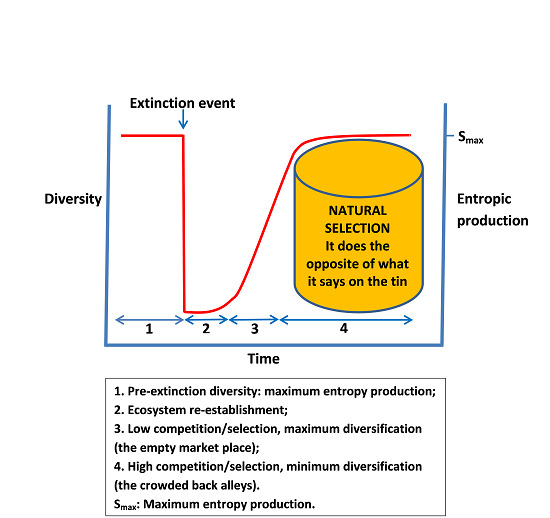
RDE takes PE as its theoretical basis and combines the. To further improve the performance of PE, we propose a new complexity measure for analyzing time series, and term it as reverse dispersion entropy (RDE).
Opposite of entropy series#
My question has to do with the manner in which they calculate the entropy of the surroundings.Įntropy is first operationally defined as a result of a new cyclic integral satisfying the state function criteria. Reverse permutation entropy (RPE) is defined as the distance to white noise in the opposite trend with PE and W-PE, which has high stability for time series with varying lengths. Under these conditions, no significant amount of entropy is created. 5 Entropy Change for a Phase Transition If during a phase transition, such as ice melting, heat is slowly absorbed by the system, it remains near equilibrium as the ice melts. In my undergraduate book Physical chemistry by Engel and Reid, sample problem 5.8 calculates the change in entropy of the surroundings and system for an irreversible isothermal compression. to the surroundings will have the opposite sign The magnitude of )Ssurr will depend on the temperature as well as the magnitude of )Hsys. That is, from your situated intelligence monitoring the actions you take in the role of subjective doer in engagement at the same time with sensory impressions you form in the role of objective perceiver. Knowing yourself flows from engaging yourself. Life begins with cellular division forming an organization that becomes an organism. Posts about opposite of entropy written by Steve Perrin. The entropy of vaporization is equal to the enthalpy of vaporization divided by boiling point. This is due to an increase in molecular movement which creates a randomness of motion. Is product- or reactant-favored at 25 ✬.I have a specific query. There seems to be all sorts of complicated definitions for entropy, but the third law of thermal dynamics is that all matter progresses towards a state of disorder. The entropy of vaporization is a state when there is an increase in entropy as liquid changes into a vapour. If it is less than zero, the reaction is reactant-favored. If it is greater than zero, the reaction is product-favored. Now that DS syst and DS surr are known, DS univ can be determined. DH syst can be calculated in the way described in the Thermochemical Equations module. Entropy is thus a measure of the random activity in a system, whereas enthalpy is a measure of the overall amount of energy in the system. So, q surr and DH syst must always have opposite signs, which is why DH syst is given a negative sign. Why does DH syst have a negative sign? Any heat lost by the system is gained by the surroundings, and conversely, any heat gained by the system is lost by the surroundings. Thus, equation (1) can be used to calculate DS surr: Since the surroundings are so much bigger than the system, its temperature is certain to stay constant.


But, the only way the system affects the surroundings is by a transfer of heat. It may seem unlikely that the entropy change of the surroundings can be calculated just from what is known about the system. It can be calculated using absolute entropies as has been described on the previous page. Is product- or reactant-favored? The entropy change of the universe can beīroken up into two parts, the entropy change of the system and the entropyĭS syst, the entropy change of the system, represents the change in order of the molecules of the system, similar to what was discussed in Entropy 2. How can the Second Law of Thermodynamics be used to predict whether a reaction The formal statement of this fact is the Second Law of Thermodynamics: in any product-favored process the entropy of the universe increases. The situations described in the second and third pages of this tutorial illustrate the fact that product-favored reactions tend to increase disorder simply because they are much more likely to occur.


 0 kommentar(er)
0 kommentar(er)
